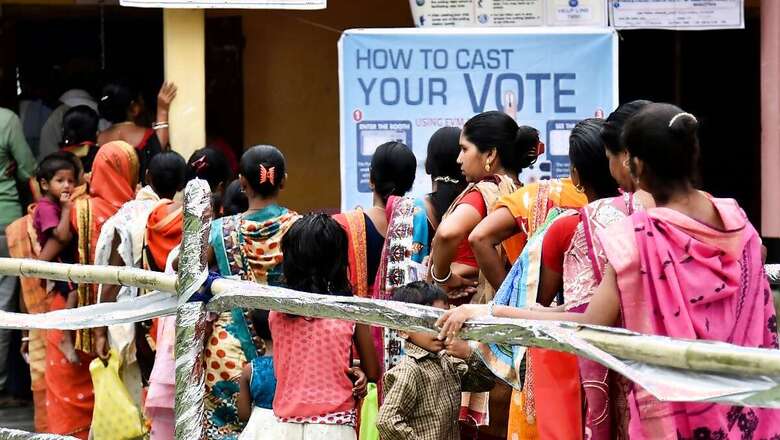
views
Loan waivers, free electricity, cash schemes, and subsidy on LPG cylinders — all the poll promises that the Congress made before elections appeared to have fallen flat in Chhattisgarh, Rajasthan, and Madhya Pradesh, while the incentives for women voters worked for the BJP. The assembly election results in these three states are indicative of the politics of “freebies” or “revdi” as it is popularly called by senior politicians of the BJP, including Prime Minister Narendra Modi, failing to earn the expected electoral dividends for the Congress. However, the BJP’s “reworked” schemes for women voters in Madhya Pradesh and a last-minute announcement in Chhattisgarh seem to have given the party the required boost.
After the results of the Karnataka assembly elections came out in May, the electoral strategy of promising financial assistance for women voters almost became a trend for all Congress-ruled states as well as those like Madhya Pradesh where the party expected a turnaround.
Learning from Bengal, Karnataka
The election results of West Bengal in 2021 and Karnataka in 2023 show how women voters played a key role in determining poll outcomes. Bengal chief minister Mamata Banerjee’s announcement of financial assistance of Rs 500 to all women voters, called Laxmi Bhandar, brought the party a landslide victory in the state. A similar pattern was noticed in Karnataka as the Congress in its manifesto announced financial assistance for women and called it Gruha Lakshmi. The promised financial assistance was, however, four times bigger than what Banerjee announced in Bengal.
Following the Karnataka elections, the Congress made the financial assistance scheme for women voters part of its election strategy and announced similar plans in Madhya Pradesh, Chhattisgarh, and Rajasthan. The BJP, which initially resisted the idea of making financial assistance to women voters a poll promise, later proposed similar packages in MP and Chattisgarh.
Turning women voters around
The narrative around women voters, the financial assistance that the BJP initially called freebies, was so strong that it almost forced the party’s central leadership to ponder. In Madhya Pradesh, incumbent chief minister Shivraj Singh Chouhan increased the amount for the existing Ladli Behna Yojana, while the central leadership of the BJP included financial assistance for women in its manifesto for Chhattisgarh.
The party proposed Rs 12,000 for married women voters as an annual allowance. The scheme was announced by union home minister Amit Shah in Chhattisgarh and made it into the BJP manifesto in the state. A senior BJP leader in the state told News18 that former chief minister Raman Singh actively pitched for a woman-centric financial assistance scheme. He, in party meetings, said the manifesto must include a scheme like Ladli Behna of Madhya Pradesh chief minister Shivraj Singh Chouhan. Shah announced the scheme and named it Mahtari Vandan Yojana, two days before the first phase of polls in the state.
In Chhattisgarh, Madhya Pradesh, and Rajasthan, the BJP raised and campaigned around women’s issues. In MP and Chhattisgarh, the party banked on women voters after analysing their percentage and announced schemes centred on them. During polling, women voters came out in big numbers and queued up to exercise their franchise.
“The women vote is now decisively with the BJP and this is now a pan-India phenomenon,” Akhilesh Mishra, a pro-BJP intellectual and CEO of Bluekraft Digital Foundation, posted on social media site X.



















Comments
0 comment